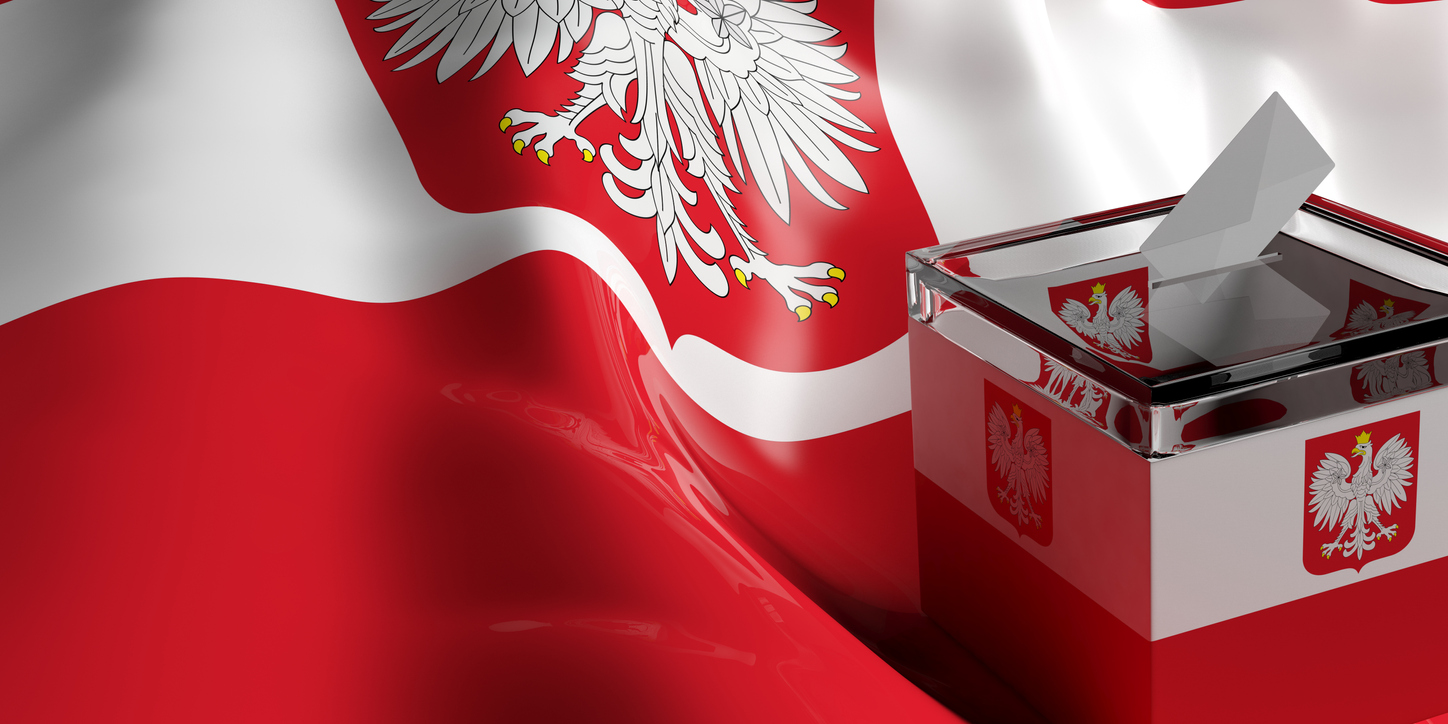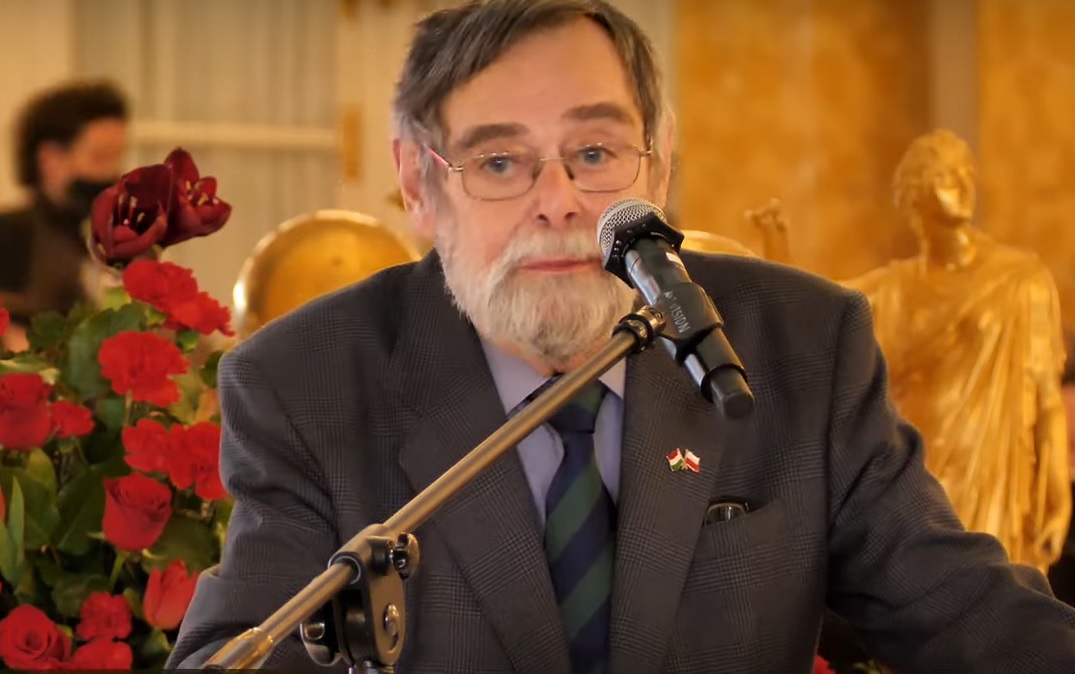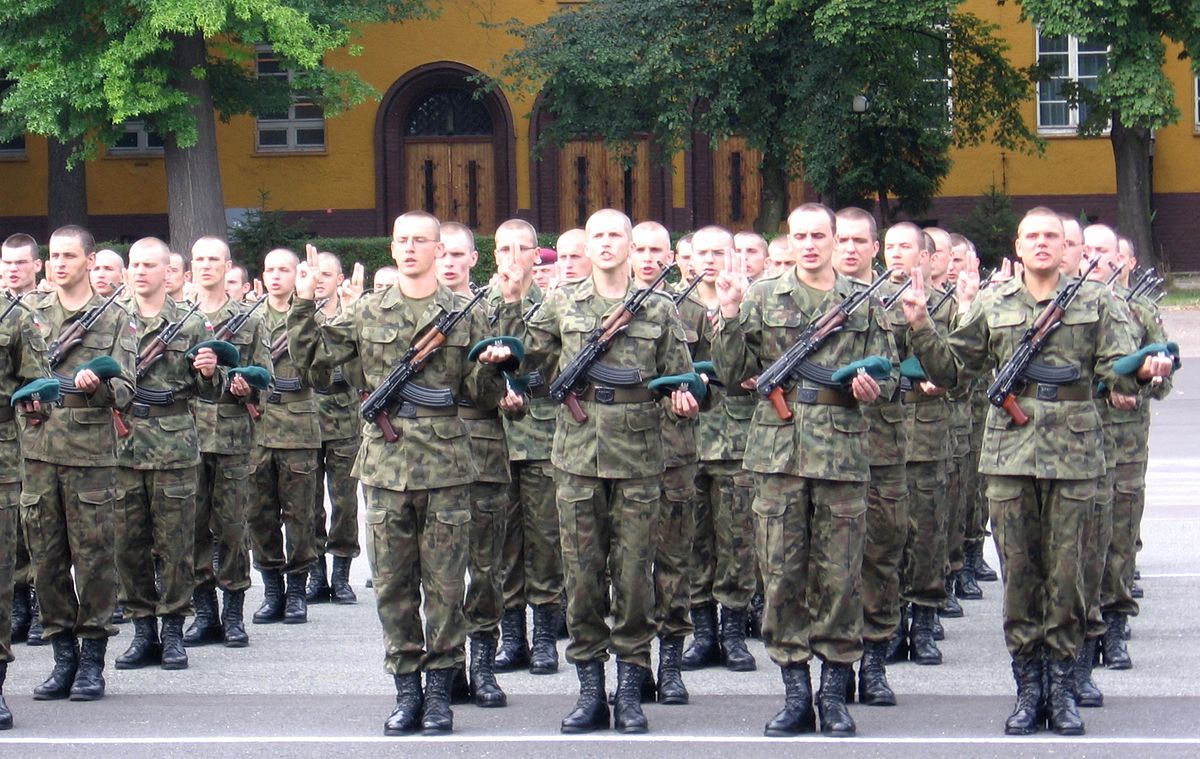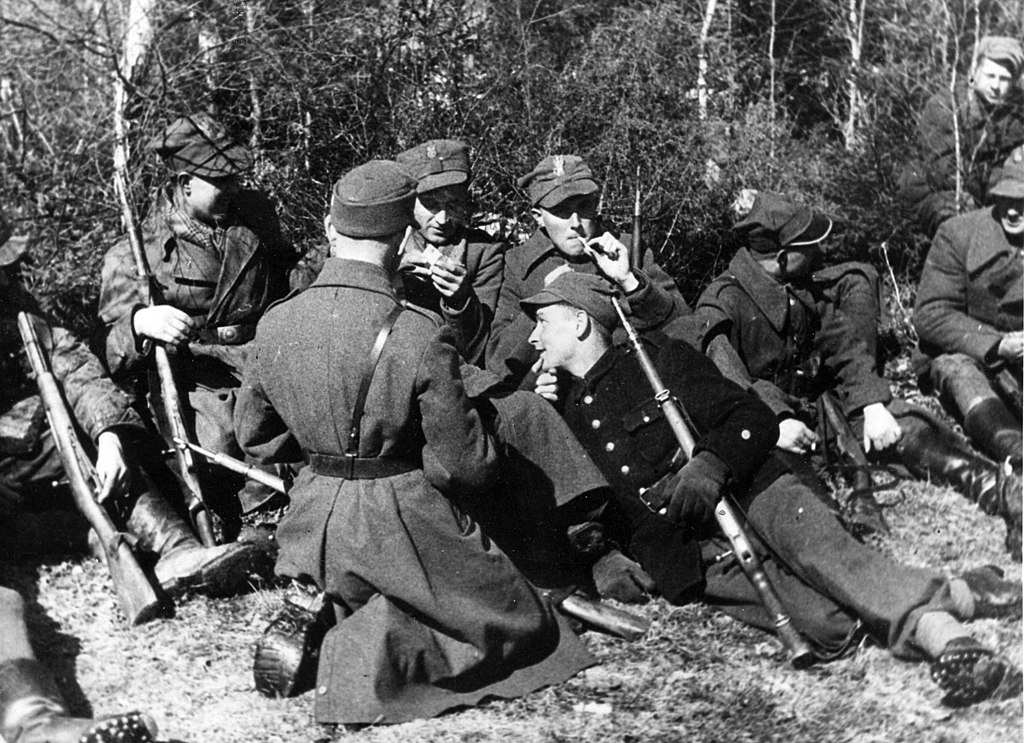What future for the Polish Right and for democracy? (Interview)

“I take seriously the possibility that there will be no more genuine elections in Poland. The answer may be revolution, if Polish society is still capable of it. I am saying that authoritarianism is a viable prospect because the same trend is beginning to prevail among the European elites.”
Ryszard Gromadzki interviewed Prof. Andrzej Nowak, a historian at the Institute of History of the Polish Academy of Sciences in Warsaw and at the Jagiellonian University in Krakow, where he is the head of the Section for the History of Eastern Europe. Prof. Nowak is a recognized specialist in Russian and Soviet history and he is also the author of many books and articles on history that have made him famous in his home country, where he is often asked to comment on the political situation from the broader perspective of history.
In your opinion piece entitled “The Voice of an Old Voter with the Younger Ones in Mind,” [Pol.: “Głos starego wyborcy z myślą o młodszych”], which was published on the Arcana website, you appealed to Jarosław Kaczyński to resign from the leadership of the Law and Justice party (PiS), and to PiS itself to reflect deeply upon why the elections were lost. You argue that this is necessary and in PiS’ interest if it wants to regain power in the future, not to mention restore the Polish state, which is being destroyed at ‘warp speed’ by the new coalition led by Tusk. Knowing this reality, aren’t you afraid that your voice will be a “cry in the wilderness”?
I don’t have the impression that my piece is “a voice crying out in the wilderness,” as it has been positively received in some circles. Of course, this reaction will probably be – or is – quite differently received in Kaczyński’s fortified PiS inner circle. The day before our interview, I heard a rather strange announcement on Republika television in the form of a short statement of several dozen seconds by the PiS leader which I believe made some reference to my text. Only some of the readers of our interview may have heard it, so I will describe its contents.
Well, Kaczyński declared that resigning from the PiS party’s leadership at this moment would be something like desertion. What he announced last year is no longer valid; he will not step down as the leader if such is the will of the party. So, there is a specific reaction. This is all the more reason why I can’t say that my piece is “a voice crying out in the wilderness.” I think that in the circle of people who are very close to Law and Justice, who wish PiS well as a party that has played – and continues to play – a very important role in Polish political life, it is a kind of encouragement to think about how to respond to the crisis in which Poland has found itself, against which PiS seems quite helpless at the moment.
Four months after PiS lost the elections, there is no sign of any deep self-reflection in the statements made by Jarosław Kaczyński or other leading party politicians. I know many people, including PiS supporters, who believe that Law and Justice cannot successfully fight Tusk’s team without internal upheaval.
I don’t want to make a definite statement on this issue because I have yet to hear about what is happening in PiS’ inner circle. Judging by the behavior and public statements of some of the people who make up this group, I would venture to say that they are capable of self-reflection and can understand the issues and problems that have come to light after the elections. I am thinking, among other things, of the issues associated with a situation in which the entire public media has been taken over by the new government in a brutal yet natural way as a result of the elections, and in which they are going to be used to dominate the media front, cutting off PiS from the vast majority of voters.
Can the Right regain power in Poland after losing the battle for the public media? (Interview)
This is the most egregious example. The question is how to return to pluralism in the media in a situation where the country is ruled by Donald Tusk and his political allies in an incomparably more authoritarian way than PiS was ever accused of.
The argument that in 2007, after they lost the elections, there were likewise claims that PiS was finished and that Jarosław Kaczyński would never return to power, and yet he did – and eight wonderful years followed for Law and Justice – is unfortunately very weak and does not alter the need for change and self-reflection. Seventeen years have passed since 2007; Jarosław Kaczyński was 58 in 2007 and is now 75. At that time he had a brother, which was a priceless asset. This duo was the quintessence of Law and Justice’s political game, including the use of his wingmen, whose current absence is something for which I reproach Law and Justice. The most important thing, however, is the inevitable factor of time. If the political situation does not allow Kaczyński to regain power for another eight years, he will be 83 years old at the time of his possible return.
I know there is an American example of something similar, but it is a bad one that we should avoid copying. I’m not reproaching anyone for his age, and I regard myself as an old voter, but with the current acceleration in the shaping of civilization – or rather, anti-civilization – due to changes in technology as well as in the minds of the younger generations, it is necessary to open up opportunities to reach the world of the imagination among these groups.
(…)
On what time scale does the Right, and not necessarily just PiS, have a chance to make up for all the losses likely resulting from their defeat in the 2023 parliamentary elections? A sense of realism suggests that it will be a long process.
I would like to recall the words of Pope St. John Paul II, who used to say that one should not build walls against God’s providence. He can act at any time. Because of Kaczyński’s vast political experience, there is an assumption that the breakthrough you ask for could happen sooner, even with the tightly-held media umbrella that the authoritarian ruling coalition has spread. In such a remarkably short period, even a party in a weakening phase, managed via its current commander-in-chief style, could result in the PiS party regaining power.
But my assumption is different: Donald Tusk’s reign will likely last longer. The current government will survive at least until the next parliamentary elections, with the first serious test being the upcoming presidential elections. I would like to see a change after these elections so that they are not won by some candidate who is put forward by Donald Tusk (or perhaps by himself), thus fully consolidating this somewhat authoritarian system.
The ultimate test of the current government’s effectiveness – as well as the opposition to it – will be the 2027 parliamentary elections, assuming this authoritarian government allows them to take place at all. This is because I take seriously the possibility that there will be no more genuine elections in Poland. The answer may be revolution, if Polish society is still capable of it. I am saying that authoritarianism is a viable prospect because the same trend is beginning to prevail among the European elites.
Donald Tusk’s left-liberal authoritarian revolution: Poles are facing something completely new
It is also appearing in an obvious way in the US, as shown by the attempt to block the re-election of Donald Trump as president.
If a politician emerges who is considered a “bad candidate” by the self-appointed elites, the demos – i.e., the voters – must be denied the opportunity to elect him, because they can “vote incorrectly.” They can be “wrong” – as judged by these elites, who of course know what is best for the people, while the people themselves may not realize it – so the very possibility of making a “mistake” must be taken away from these “simpletons.”
There is a question mark on the horizon over the very principle of democracy, which the self-appointed expert/media/ideological elites are putting forward increasingly clearly. But I will come back to your question. Assuming that parliamentary elections will be held in three and a half years, this will probably be the decisive moment for which it is necessary to prepare now. My appeal has been formulated in relation to such a timeline, so that we – all those who wish Poland well – can win. Not only Law and Justice – although of course, Law and Justice is the strongest, most successful party of the so-called “patriotic camp” so far, and I have no objection to it continuing to be so – but so that it can win the elections together with other groups on the Right side of the political spectrum.
I also wrote about this with confidence: not to build walls on the Right, but to build bridges. You can’t create a situation in an election campaign where the main enemy is the enemy on the Right. That is exactly what happened in the 2023 campaign.
How Poland’s Law and Justice failed its pro-life voters on abortion (interview)
Earlier, you used the word “revolt.” What has happened to our national tendency to revolt? Can the current farmers’ protests potentially overthrow Tusk’s government? Law and Justice is not taking political advantage of the potential for a revolt that has manifested in Poland. Is this passivity due to the fact that PiS, during its rule, could not effectively oppose the EU “Green Deal”? Or is it because of our uncritical opening to Ukraine, the fruits of which we are reaping today?
This is a complex question which contains several assumptions. I can’t entirely agree with some of them. You mentioned in one breath what can be called the “Green Deal,” which is an extreme, ideological construct designed to destroy the well-being of Europeans, and against which the farmers’ demonstrations are a reaction. At the same time, you mentioned “opening up to Ukraine” as an accusation.
I have to disagree with the last part of your thesis. It is necessary to help Ukraine – because Putin’s Russia not only threatens it, but also us. And here I will stop in order to avoid developing this thread. This is where we differ in terms of what I view as the Do Rzeczy line. Your question pointed in this direction: first of all, where is the spirit of revolt in our society; the second part tried to place the responsibility for extinguishing this flame solely on PiS. If I understand you correctly, you think PiS is not encouraging such a revolt. Why? Because the Tusk government is actually implementing policies that Law and Justice previously approved.
These are two different issues. Where has the Poles’ spirit of social rebellion outside the peasant/farmer group gone, and will it come back? The second question is: why isn’t PiS reacting more strongly now? Is it because it supports what the Tusk government is doing today? Again, I disagree with this second part of your diagnosis. The PiS party is not reacting because it cannot currently respond within the vicious circle of its leadership/inner circle. This is the reason for my appeal. You can see the paralysis, the weakness of the political initiatives, the repetition of specific steps, and their ineffectiveness. This is not because Law and Justice does not want to react; it simply can’t. Their leadership has been isolated from voices other than their own for years. This is where I see the problem.
So, where has this spirit of Polish revolt gone?
To a large extent it is being swallowed up by the great civilizational change I mentioned earlier, which is resulting in the increasing importance of technology as a narcotic or controller of social emotions. In 1980 there was nothing that gave the communists the kind of power – not even a hundredth of one percent – over emotions that the owners of the most influential media as well as so-called social media have today, which essentially play a de-socializing role. The young generation can live in a world of games, of fantasy – and feel that what they find in this virtual world and what they consume is more and more satisfying than that of the “genuine reality,” so to speak. It doesn’t matter so much as long as I have my smartphone, videos, and games. All I have to do is turn on Netflix for myself – and things are “cool.”
They don’t care much about the “real world”…
True, but there are limits. At this point, I want to move on to a less pessimistic thesis. This limit is the possibility of continuing this game in the virtual world, which requires a certain social minimum. I believe that Donald Tusk’s government will lead – as it did before – to the impoverishment of a considerable part of society, and indeed to the closing of opportunities for Poland’s economic development.
The game that the Tusk government is playing around the Central Communication Port (CPK) and the construction of nuclear power plants in Poland fits well into your diagnosis…
Thank you for raising this issue. This is an example of the birth – if not yet of a particular revolt, then at least of a reflection that can lead to the organization of a social movement, a protest against this government that wants to limit Poland’s potential for development. I am referring to the movement forming to defend the CPK’s construction. This is a non-partisan movement of people who want Poland to be a better place. “Better” for these people does not mean only taking revenge on the “PiS fascists,” which Tusk promised and is carrying out to the delight of the rabid fanatics.
“Better” means that we should have economic development centers here that are as strong – and perhaps even more modern – than those of our western neighbors. “Better” means that we do not accept the condition in which we are a semi-colony of economically and politically stronger members of the European Union. It is a feeling of basic attachment to our own home. We would prefer it to look better and to have a more solid foundation.
This desire hasn’t yet been eradicated from human nature and will be appealed to in the elections in four years, or even in the earlier ones to elect a new president. It’s necessary to exploit such emotions and feelings in order to appeal to well-founded ideas which can show that Donald Tusk’s government really wants to harm Poland – and in fact is doing so. All this can be a factor in preparing, if not a revolt, then indeed a political change which it would be good to use correctly – that is, to win the elections.
This interview was first published in Polish in the Do Rzeczy weekly in March 2024.



